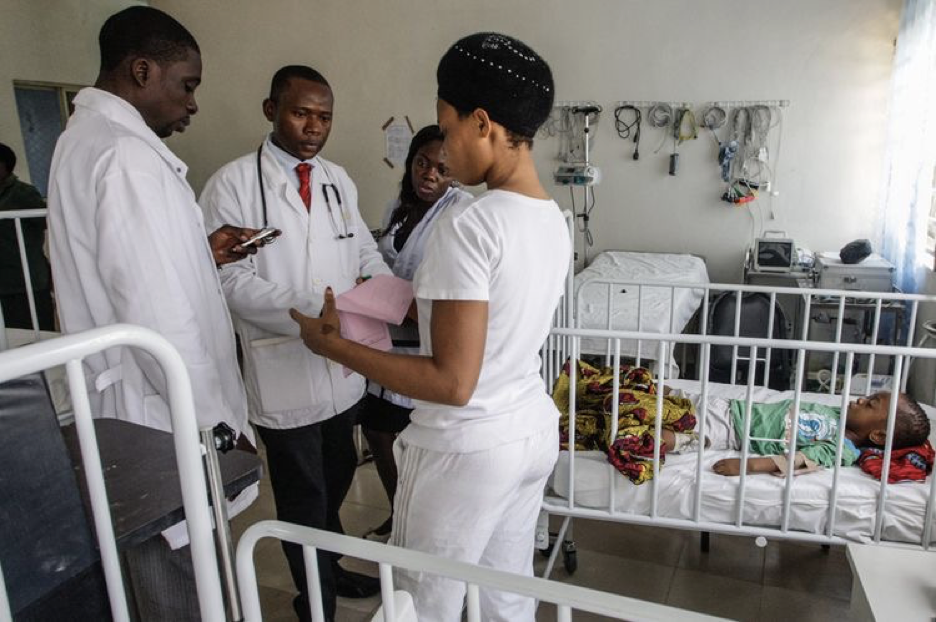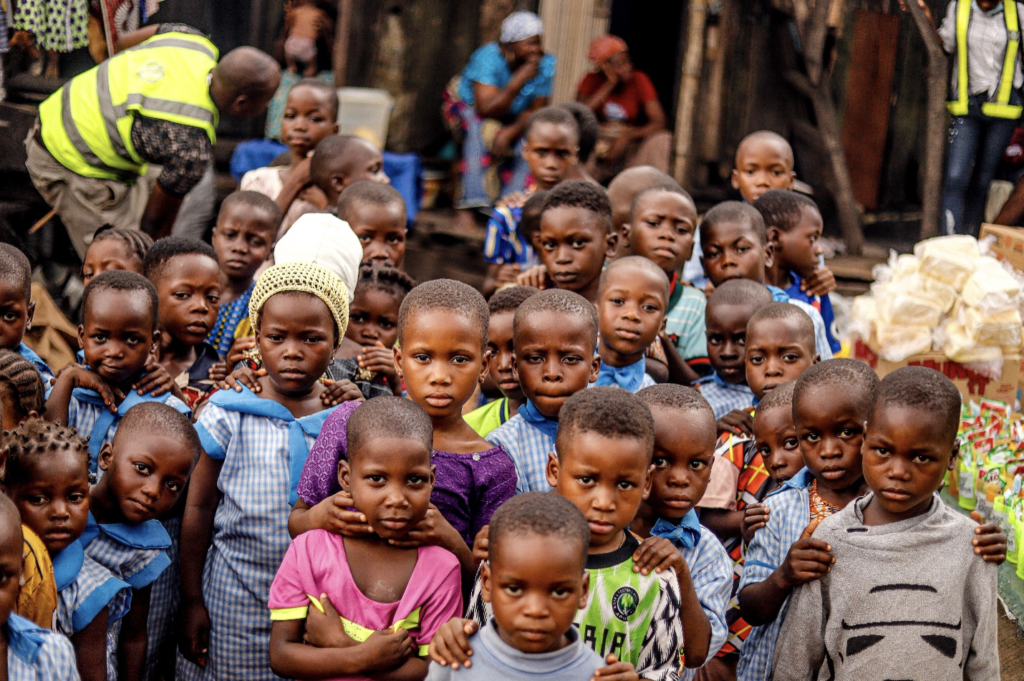Nigeria faces significant challenges in its efforts to improve child health and reduce mortality rates among its young people. The country’s complicated issue of high child mortality stems from a confluence of interconnected factors such as persistent poverty, an inadequate healthcare infrastructure, limited access to excellent medical services, and deeply ingrained cultural beliefs. In addressing these challenging challenges, non-governmental organisations (NGOs) play a critical role, complementing the government’s efforts and promoting collaboration with many stakeholders.
Nigeria has one of the most alarming rates of child mortality in the entire globe. UNICEF estimates that in Nigeria alone, 858,000 kids below the age of five died in 2019. Pneumonia, malaria, diarrhoea, malnutrition, and diseases that can be prevented by vaccination are the primary causes of infant and child mortality in Nigeria. Additionally, there are disparities in utilisation of healthcare services, with rural areas sometimes having poor infrastructure and a lack of skilled medical personnel.

In Nigeria, NGOs have taken the lead in addressing child health issues by putting in place a number of programs and initiatives focused on enhancing the general health and wellbeing of children.
A major role Many NGOs in Nigeria operating healthcare facilities and mobile clinics that offer essential medical services to children and their families. These facilities are particularly crucial in remote and underserved areas where access to healthcare is limited. NGOs also focus on preventive care, vaccinations, and nutrition programs to address malnutrition and other preventable health issues.
Additionally, health education serves as essential tool in the fight against child mortality. NGOs run community outreach initiatives, health campaigns, and workshops to spread the word regarding the value of vaccinations, healthy eating, and good hygiene habits. These programs give parents and other caregivers the information they need to decide what’s best for their kids’ health.
Additionally, NGOs organise nutrition programs with the goal of enhancing the nutritional well-being of kids by facilitating access to wholesome foods, supplementing meals, and educating parents about the need of eating a balanced diet. They also aim to promote sustainable farming methods and combat food insecurity. Additionally, clean, safe drinking water and adequate sanitation are essential for children’s health. NGOs make investments in WASH programs to increase community access to hygienic facilities and clean water. These initiatives improve general hygiene practices and lower the prevalence of waterborne infections.
NGOs have a vital role in promoting child health at the local and national levels. Collaboration with the government and other stakeholders allows NGOs to advocate for policies and initiatives s that prioritise child health and distribute resources with greater efficacy. Importantly, they play a crucial role in offering emergency medical treatment, distributing necessities, and helping affected populations during humanitarian crises like natural disasters or disease outbreaks. Their quick action helps preserve lives and lessen suffering among disadvantaged kids.

Impact of NGOs on Child Health
1. Save the Children’s Integrated Community Case Management (iCCM) Program
A well-known NGO called Save the Children started the iCCM program to teach health professionals in the community how to treat common paediatric infections including malaria, pneumonia, and diarrhoea using life-saving measures. Through this project, children in isolated locations were given prompt access to medical care, which significantly lowered the rates of child mortality.
2. Nutrition Interventions by UNICEF
Through its nutrition efforts, UNICEF has played a significant role in combating malnutrition in Nigeria. They have achieved tremendous progress in lowering the number of infant mortality attributable to malnutrition by encouraging exclusive breastfeeding as well as encouraging the treatment of severe acute malnutrition.
3. The Carter Centres Guinea Worm Eradication Program
The Carter Centre has worked extensively with the Nigerian government to eradicate Guinea worm illness in Nigeria. This project has assisted in the protection of many youngsters from this painful and severe parasite infection.
4. SOS Children’s Village initiatives in Nigeria have become rays of hope, uplifting marginalized kids and communities all around the country. For orphaned and abandoned children, these programs, which are managed by the prestigious non-governmental organization SOS Children’s Villages, offer comprehensive care, education, and a loving home atmosphere. SOS programs, with their unwavering dedication to ending the cycle of poverty, are crucial in building resilience and preparing young people for the real world. Through their admirable work, SOS is not only improving the lives of innumerable children but also advancing a more promising and inclusive future for all of Nigeria.
Even with their tremendous contributions, NGOs in Nigeria still face a number of obstacles to advancing child health:
1. Limited Resources: Many NGOs rely on outside financing, which might fluctuate and be dependent on sponsor preferences. The development of programs and the longevity of their efforts may be hampered by inadequate funding.
2. Inadequate Infrastructure: Poor infrastructure, particularly in rural regions, can make it difficult for NGOs to successfully serve at-risk groups.
3. Security Issues: NGOs may have trouble getting to and helping communities in need in areas afflicted by violence and unrest.
4. Cultural and socioeconomic hindrances: Low levels of education and poverty, as well as cultural views and behaviours, might reduce the efficacy of health interventions.

Improving child health in Nigeria is a multifaceted process that requires a collaborative effort involving governmental agencies, non-governmental organisations (NGOs), and a varied range of stakeholders. Notably, non-governmental organisations (NGOs) play an important role in the process, as they actively engage in addressing the root causes of child mortality, strategically designing and implementing targeted initiatives, and deftly advocating for policy changes that prioritise the well-being of the nation’s youth. These NGOs have made significant progress in improving child health outcomes in Nigeria, thanks to their steadfast dedication, resourcefulness, and tenacity. Nevertheless, the journey toward a healthier future for the country’s children hinges critically upon the unwavering support, cooperative synergy, and unwavering commitment of all stakeholders, sustained harmoniously over time.
SOURCES
- https://medium.com/@akshayapatra.info/role-of-ngos-in-child-welfare-4fe0ad557501
- https://www.end-violence.org/grants/unicef-nigeria
- https://www.voanews.com/amp/millions-nigerian-children-are-out-of-school-unicef-says/6569716.html
- https://www.savethechildren.net/
- https://www.sos-childrensvillages.org/
- https://tydanjumafoundation.org/reducing-maternal-and-child-mortality-in-nigeria/




